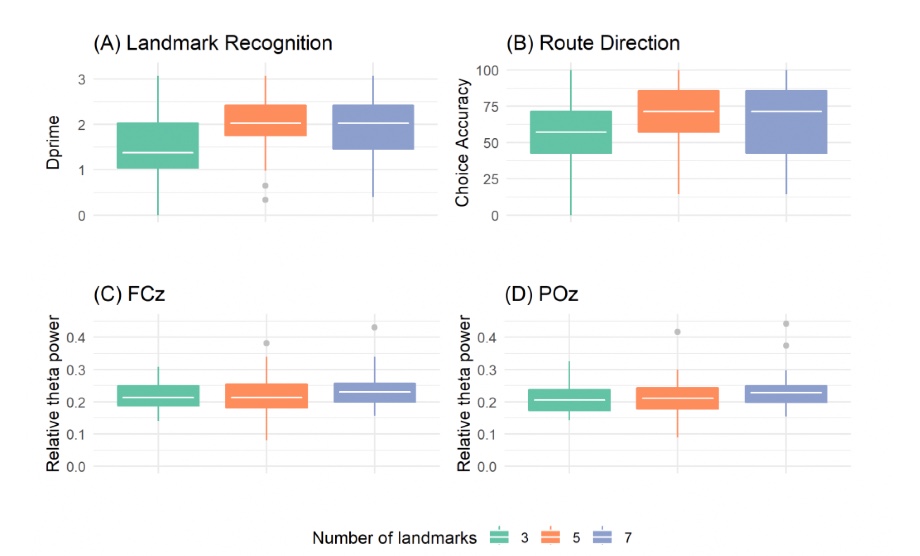ICC 2021
Effect of cognitive load on spatial learning during navigation: a virtual reality study
International Neuroergonomics Conference 2021, Sep. 11-15, 2021.
Ludwig-Maximilians-Universität Fakultät für Mathematik

Cheng, B., Ruginski, I.T., Wunderlich, A., Gramann, K., Fabrikant, S.I. (2021).
International Neuroergonomics Conference 2021, Sep. 11-15, 2021. Ludwig-Maximilians-Universität Fakultät für Mathematik, Informatik und Statistik, Munich, Germany.
Introduction
GPS-enabled smart assistive devices are commonly used to facilitate navigation, especially in unfamiliar environments. When guided by such devices, turn-by-turn directions are at our fingertips in real time. However, increased use of mobile maps has been shown to negatively affect route and landmark learning. Considering the importance of spatial cognition in education and cognitive aging, and that millions of citizens navigate daily using navigation devices, there is a need to develop a navigation system that preserves spatial learning, while ensuring navigation efficiency.
Landmarks serve as cognitive anchors to structure an environment, and thus help navigators to determine their current location and heading in the environment and to get to a planned destination. Navigation and landmark learning are both mentally demanding tasks that may impact cognitive load and spatial learning. Level of task difficulty can be indicated by cognitive load measured by electroencephalography (EEG) (Gevins & Smith, 2003). Cognitive capacity theories suggest that learning performance drops when the number of learning items exceeds an individual’s limited cognitive capacity (Luck & Vogel, 1997).
We thus hypothesize that 1) cognitive load, indicated by increased frontal theta and decreased parietal alpha activity, measured with EEG during a mobile map-assisted route-following task in a virtual environment will increase when the number of landmarks on the map increases, and that 2) spatial learning performance will improve with increasing number of landmarks on the map until this number exceeds the navigators’ cognitive capacity, at which point spatial learning performance will decrease again.